Game-changers: The Blenheim brothers bringing award-winning meat to the table
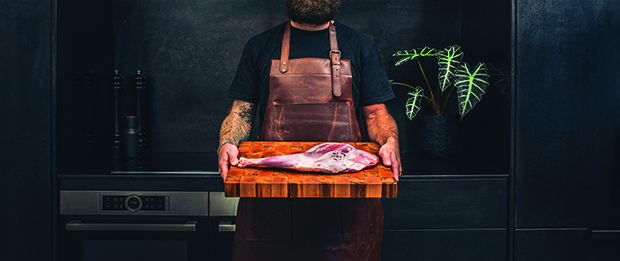
An award-winning peak-to-plate business run by two Marlborough brothers turns pests into prized cuisine, providing healthy protein for gourmets.
Words: Emma Rawson Photo: Jim Tannock
The hills of Marlborough are alive, and not with the sound of music. High on the hills are herds of feral goats Julie Andrews would certainly never sing about. These wild wastrels climb every mountain, gobble native trees, and wander through farms, eating any crop that touches their chinny-chin-chins. Elsewhere, thousands of tahr, deer and pigs, gnaw, nibble and trample a path of destruction around other precious mountain areas, such as Kā Tiritiri o te Moana/Southern Alps, demolishing native plants as well as the habitat of many species of birds, insects and lizards. On lower terrain in Central Otago, millions of rabbits and hares burrow through pasture while taking their pick of the best grass.
Brothers Darren and Nick Clifford croon ‘So long, farewell’ to these feral beasts while utilising their high-quality lean meat through their business Premium Game. The Blenheim-based company sells fresh cuts of venison fillet, rabbit loin and wild goat osso buco, as well as pet food and small goods, including curried goat sausages, mānuka-smoked wild pork bacon and venison pastrami, to restaurants and direct to customers online and through selected supermarkets and boutique stores. They do an excellent job of it, too, impressing the judges of the Outstanding NZ Food Producer Awards and winning the 2023 NZ Life & Leisure Spirit of New Zealand Award for their great-tasting meat, innovative business and sustainability efforts.
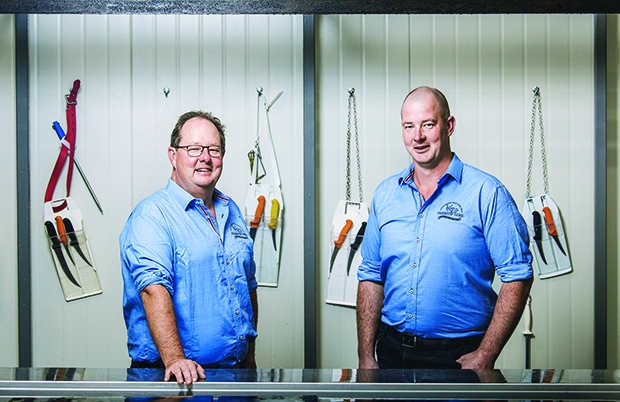
Brothers Darren (left) and Nick Clifford grew up hunting in the hills of Marlborough. They turned a lifelong hobby into their livelihood when they bought Premium Game.
Premium Game was founded by a group of hunters in 1991. The hunters used a small processing facility in Blenheim in the Marlborough area. However, as the hunters got closer to retirement age, the compliance required to hunt wild species and process game meats became more difficult. By 2018, when brothers Nick and Darren took over the business, Premium Game was so tangled in red tape it needed an overhaul.
Luckily, the brothers were not only passionate foodies and hardy hunter-gatherers; they were armed with excellent business acumen. Darren, the eldest of six in the Clifford clan, is a former beekeeper, honey producer, farmer and helicopter pilot. Nick, the baby of the family, has a background in mechanical engineering in the agricultural sector. He’s also a great cook. Together they transformed the business into New Zealand’s most significant game meat producer. In five years, they have increased the volume of meat they process by 600 per cent, grown their staff from three to 20 and expanded into a second processing facility. The growth was fair game, but it hasn’t been easy.

“When we took over the business, it was pretty much an entirely ground-based operation and 99 per cent of the meat was supplied by local game hunters that were basically hunting on foot over the weekends,” says Nick. “They were all trained and regulated by MPI, but the supply was unreliable. Something like the Rugby World Cup would come along, and suddenly, you’d only have five animals hanging in the chiller rather than 150. There was a huge problem for the business model — we can’t compete with rugby,” says Nick.
The business was also limited by how much hunters could carry from the bush to the processing facility. To combat this, Nick and Darren took the business sky high — literally — with a team who hunt via helicopter to pick up large game previously too high in the hills to carry back to camp. Premium Game continues to work with local MPI-certified hunters to supplement its animal harvest each week, ensuring supply continuity.
“The supply is now reliable, and we can actively target certain species. The product is much better when it’s flown off the hill quickly into a chill truck,” says Nick.
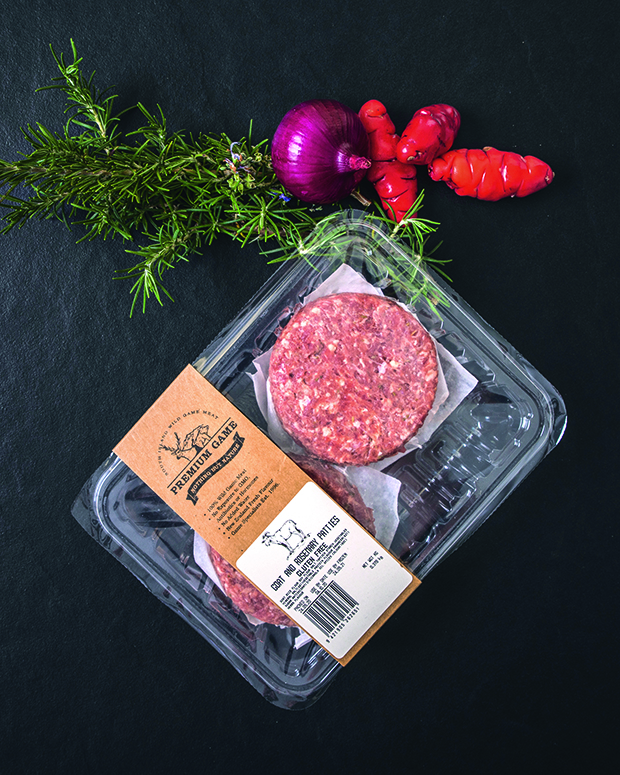
It’s a much more complicated story for rabbits, hares and wallabies. Nick and Darren work with four professional hunters in Central Otago who hunt at night using thermal imagery gear. Although the South Island is teeming with rabbits, this supply is much less steady due to MPI regulations controlling how these animals are hunted. Premium Game has 48 hours to get rabbit or hare carcases into a managed processing facility.
“Our hunters only get two nights of work before they have to race the animals up the South Island. We should put 6000 rabbits into a truck in one go to make it more economical, but the rules are different for small game.”
Premium Game is in talks with MPI about adapting the laws for rabbit and hare hunting in line with the more straightforward regulations covering larger animals. Game such as deer can be held in registered and inspected chiller trucks called mobile animal material depots (AMDs) for up to 96 hours before arriving in a primary processor.
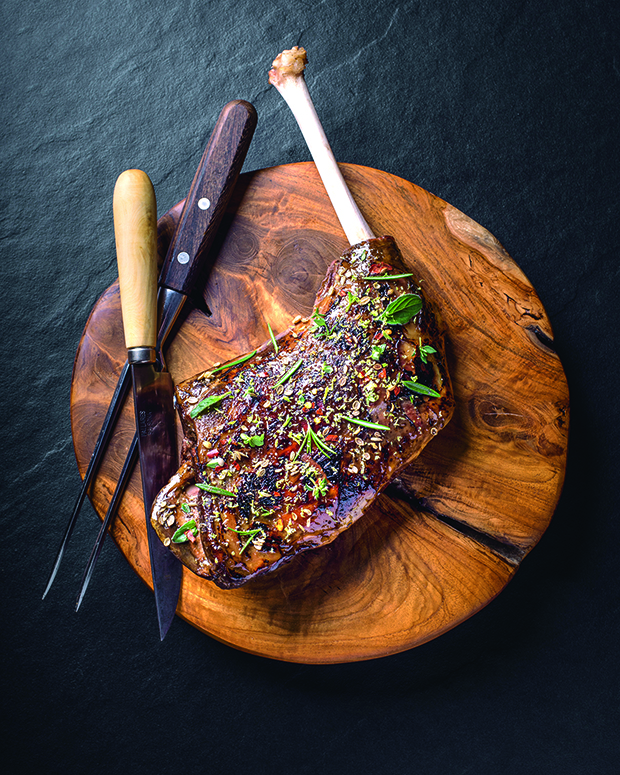
“It’s a technicality that legislation doesn’t mention rabbits and hares, so we’ve been working with MPI to try and get that to change as it could make it easier to make a serious dent in pest numbers in those areas.”
As head of operations, much of Nick’s time is taken up with compliance. As a certified supplier of wild game, Premium Game must have hunting, weapon and helicopter licences as well as MPI audits and compliance around animal processing facilities. Premium Game also needs a Poison Use Statement for every animal harvested. This documentation declares that the property or associated properties from where the game is shot are not using poison.
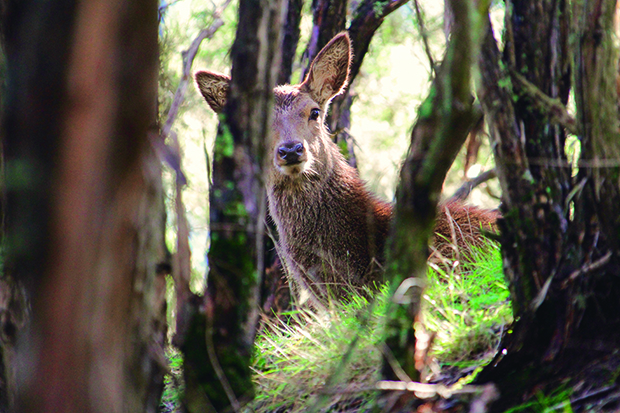
Fallow is New Zealand’s second most common feral deer species. The meat is mellower and more tender than traditional venison.
“For a deer, the poison use area is a four-kilometre radius, so we have to plot the GPS coordinates of the place of death. Any property within those four kilometres must have a signed Poison Use Statement. The Poison Use Statements only last for three months, so we hold about 300 of those documents for Marlborough alone,” says Nick.
Darren runs the hunting teams and helicopter parts of the business. Many of the hunting areas in Marlborough are on private land owned by farmers, who use Premium Game as part of their pest control. Many of these landowners are contacts from Darren’s days in the honey business. Meanwhile, Nick sticks to the operations side, which means a lot of paperwork. But he’s closer to the butchery side, which he loves. “I have a passion for butchery and food, and that’s my strength,” he says.
“What I love about this business is that we provide a service with pest control but also make good use of that animal, whether it’s waste material turned into pet food or a premium cut of lean meat. Yes, there’s a complexity to what we do, but it feels good to make a difference.”
A CUT ABOVE
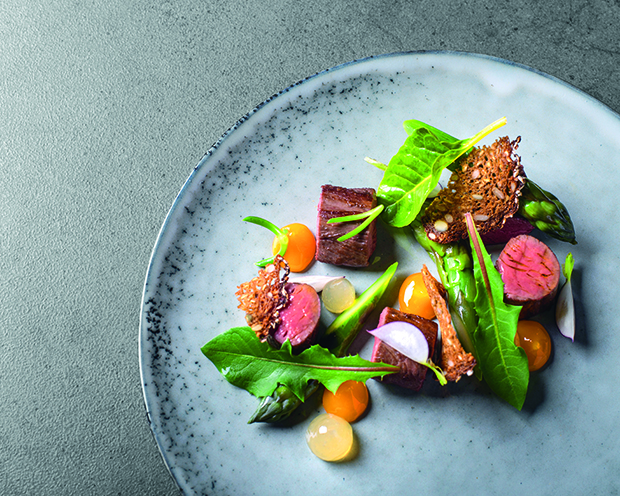
Premium Game’s wild venison comes from wild red deer and has a vibrant colour and rich flavour, sought after by chefs in restaurants such as Ahi and Cazador. Premium Game sells several cuts of venison, including venison steaks, which won a gold medal in the 2023 Outstanding NZ Food Producer Awards.
Premium Game’s meats are popular with chefs looking for sustainable options for their patrons. Many are also excited by the possibilities that game meat, which is lean and low in saturated fat, can provide.
Premium Game is regularly on the menu at Ahi restaurant in Auckland, which even had tahr tartare on the menu at one point. Wallaby tartare is the current rare treat, just as delicious but without the yummy wordplay.
Nick says consumers are interested in the sustainability side of their business, but some, especially those without hunting backgrounds, are nervous about cooking game.
“As a rule, treat any game meat like it’s very lean, so it needs to be medium rare, if not rare.”
Premium Game’s Plum Marinated Venison Steaks are good for beginners, he suggests. And many game meats lend themselves well to slow cooking in casseroles or by braising.
“A cut like the shoulder of a goat can be slow-roasted as you would with a lamb shoulder. You just need to remember it’s not a fatty lamb shoulder so you might need to drop back the temperature a bit.”
Love this story? Subscribe now!
 This article first appeared in NZ Life & Leisure Magazine.
This article first appeared in NZ Life & Leisure Magazine.

